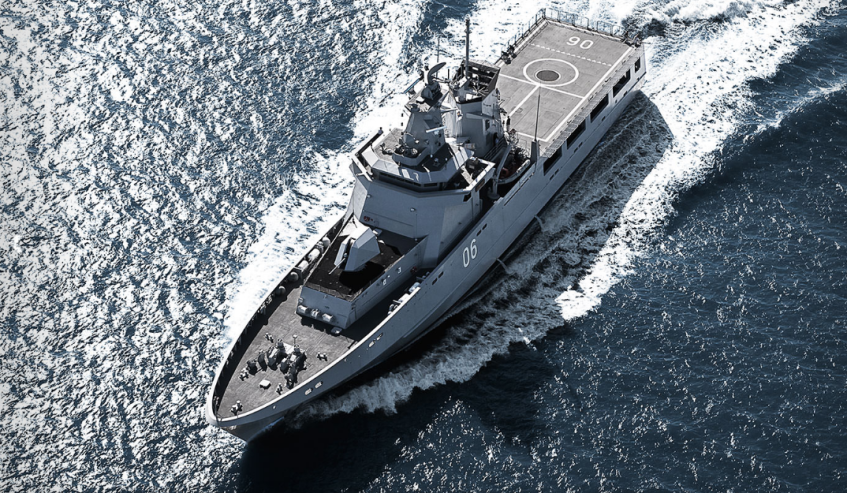The government’s decision to split the build of the SEA 1180 Offshore Patrol Vessels between ASC, Austal and Civmec has increased the country’s chances of becoming a key exporter of minor warships, said Austal chief executive David Singleton.
To continue reading the rest of this article, please log in.
Create free account to get unlimited news articles and more!
The 12 Offshore Patrol Vessels (OPVs), which will be designed by Lürssen, will see ASC construct the first two vessels, while Austal and Civmec will build the remaining 10 once the project moves to Perth in 2020.
Speaking to Defence Connect, Singleton said while the entire result "may not have been our preference", the decision to have three Australian companies as key builders on the project will only increase Australia's expertise in shipbuilding and improve its potential to become a leading exporter of ships.
"I think these programs will help Australia over time to continue to increase its shipbuilding," said Singleton.
"We've got a pretty good industry here already. You look at Incat in Tasmania, who are a really good high-speed aluminium shipbuilder. We're probably now the biggest high-speed aluminium shipbuilder for the commercial market in the world. We've got a couple of design houses in this country, in One2three and Incat Crowther in Sydney, who design ships for around the world.
"Then you've got ASC. We're seeing our shipbuilding industry, certainly in aluminium high-speed vessels, we're an absolute world leader in this country. There's no question about that, with all those companies, this is adding another string to our bow."
ASC had already set its sights on securing export opportunities in shipbuilding before it was known it would build the first two OPVs.
In October, CEO of ASC Shipbuilding Mark Lamarre made the announcement at the Pacific 2017 exposition in Sydney that plans are in the works to target ship export projects with overseas designers and customers.
"We acknowledge these plans are in their infancy, but we’re excited by the government’s bold plan to pursue export markets and think Australian companies are best placed to make this happen," Lamarre said.
"We are in a great position to achieve exports, with our existing capability and workforce."
Defence Industry Minister Christopher Pyne has also been a vocal advocate for Australia to become a major shipbuilding exporter, and has emphasised Australia must leverage the government's $89 billion investment in naval shipbuilding.
"We want to use the heft of our defence spend to develop our export capabilities," the minister told a Washington audience earlier this year.
Minister Pyne said Australia is looking to emulate Spain's success, taking inspiration from shipbuilder Navantia.
"In the same way Spain developed a naval shipbuilding export industry, so can Australia," he said.
Navantia is one of Spain's biggest success stories, providing vessels not only for the Spanish Navy, but also other nations including Australia. So far, Navantia has designed the Air Warfare Destroyers and Canberra Class Landing Helicopter Docks, is currently building the Auxiliary Oiler Replenishment ships and is also bidding to secure the $35 billion Future Frigates Project.
Minister Pyne recently added that, while he is confident Australia is on its way to becoming an exporter in shipbuilding like patrol vessels, he is hopeful submarines will be the next step.
"I have a very broad vision about shipbuilding and submarine building," the minister said at the fourth Submarine Science, Technology and Engineering Conference.
"I am certain we will become a export nation for shipbuilding and if we can become an export nation for submarines, that’s something we can explore.
"I do think there are possibilities for that and I don’t think we should be limited in our thinking."

 Login
Login







